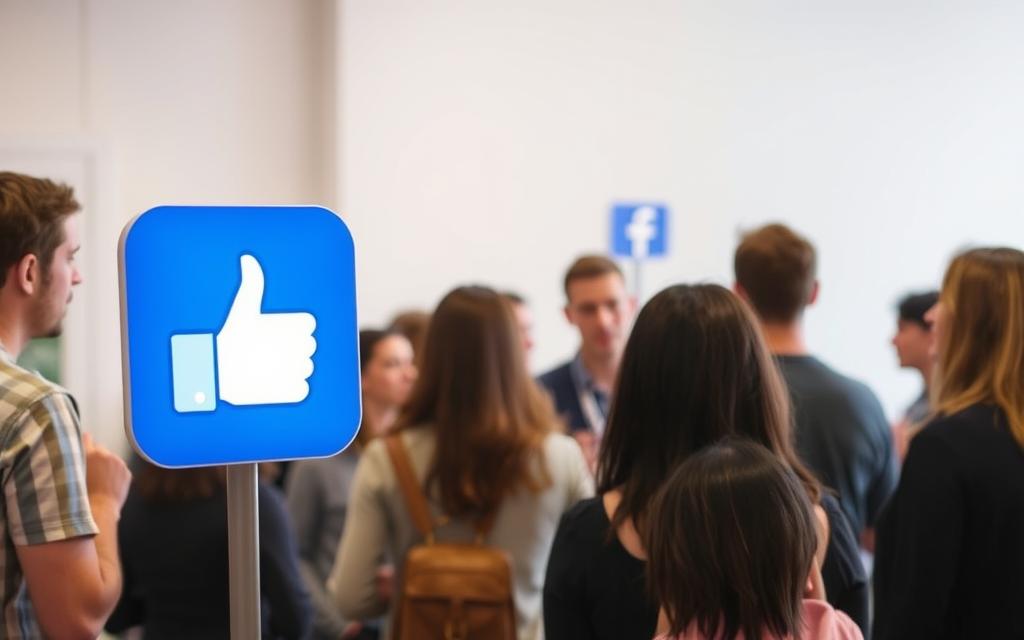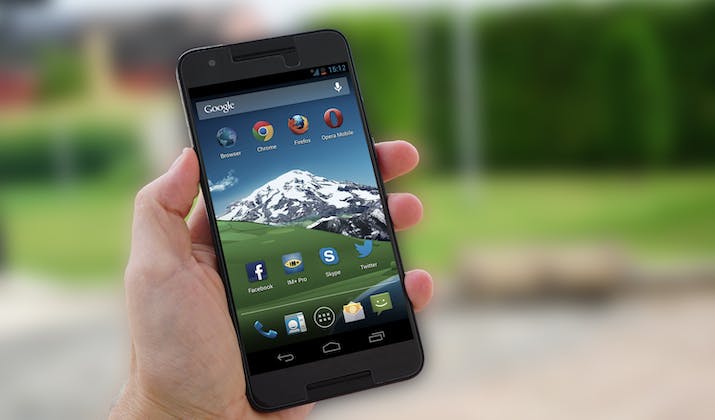Envisage this – you’re scrolling through your Facebook feed.
Suddenly out of the blue, you see a high school friend’s post about a life milestone, a wedding, a new job, or perhaps the birth of a child.
You hit the like button, feeling connected despite the years that have passed. But as you close the app and refocus on your day, you might wonder—at what cost does this connection come?
Facebook has undoubtedly shaped the way we communicate. The platform is a powerful connection, community-building, and business development tool today.
Simultaneously though, it also opens the door to privacy concerns, online bullying, and the complexities of managing information.
You might wonder where you fit in this landscape of likes, shares, and viral content.
Are you effectively leveraging Facebook’s tools while remaining vigilant about its potential pitfalls?
In this article, we will explore both sides of Facebook, addressing how it can affect you and others in today’s interconnected world.
Let’s get started.
Pros of Facebook
1. Global Connectivity
2. Community Building
Facebook excels at bringing together people with shared interests, no matter how niche or specific those interests may be.
If you’re passionate about a particular hobby, looking for support on a personal issue, or wanting to engage with others who share your values, there’s likely a group waiting for you.
These communities foster a strong sense of belonging, allowing members to share experiences, offer advice, and find encouragement in a supportive environment.
In many cases, these groups can become safe spaces where people feel understood and connected, even with strangers.
3. Business & Brand Promotion
For small businesses, entrepreneurs, and brands, Facebook serves as an invaluable marketing tool with extensive reach.
The platform allows for highly targeted advertising, helping businesses tailor their message to the right audience.
It also facilitates direct engagement with customers, fostering deeper relationships and increasing brand loyalty.
Additionally, Facebook offers a cost-effective way to build brand visibility, grow online presence, and reach potential customers at a fraction of traditional advertising costs.
Check out: SocialBlast – Generate Likes for Social Media
4. Event Planning & Invites
Facebook’s event feature simplifies the entire process of planning, organizing, and inviting people to events, making it incredibly convenient.
Whether you’re hosting a birthday party, concert, or virtual gathering, the platform allows you to create event pages that provide all the necessary details in one place.
You can easily send out invites, track RSVPs, and keep guests informed of any updates or changes.
The streamlined approach makes event management more efficient, ensuring that everyone stays in the loop without the hassle of multiple communication channels.
5. Instant News & Information
Facebook serves as a central hub for instant news and staying informed on current events.
Many users rely on the platform to catch the latest updates, breaking news, or trending topics, often before they appear on traditional news outlets.
The ability to share articles, videos, and insights from a wide range of sources adds to its appeal, creating a diverse flow of information.
This makes Facebook a quick and convenient go-to for those who want to stay updated on both global events and niche interests.
6. Marketplace & Online Selling
Facebook Marketplace offers a convenient platform for buying and selling goods locally or even within a broader network.
It’s a simple and user-friendly interface where you can list items ranging from furniture and clothes to electronics and more.
The platform fosters a peer-to-peer marketplace, allowing users to connect with buyers or sellers in their community with ease.
With features that enable direct communication and quick transactions, Facebook Marketplace has become a go-to for anyone looking to make or find deals.
Explore: InstBlast.com Review & Competitors
7. Access to Diverse Content
Facebook offers access to a wide variety of content, ranging from entertaining videos and memes to insightful articles and live streams.
This diversity ensures that there’s something for everyone, catering to different interests, hobbies, and passions.
Whether you’re looking to stay entertained, informed, or engaged with the latest trends, Facebook delivers a constant stream of content that keeps users coming back.
Its broad content spectrum makes it a platform where people can explore, discover, and share what they love.
8. Social Causes & Fundraising
Facebook has become a powerful platform for activism and social impact, providing a space for individuals and organizations to champion important causes.
Many charities, nonprofits, and grassroots movements utilize Facebook to raise awareness, gather support, and encourage participation in meaningful efforts.
Fundraisers have gained significant traction on the platform, allowing users to easily donate to causes they care about.
By amplifying social causes and simplifying the process of fundraising, Facebook has helped bring global attention and financial support to a wide range of issues.
9. Memories & Nostalgia
One of Facebook’s most heartwarming features is its ability to bring back cherished memories.
Photos, posts, and status updates from years past frequently resurface, allowing users to take a nostalgic trip down memory lane.
Whether it’s revisiting a milestone, a special moment with loved ones, or simply reliving a fun event, this feature adds a personal touch to the Facebook experience.
It helps users reflect on their personal history, fostering a sense of continuity and connection with their past.
10. Messenger as a Communication Tool
Facebook Messenger has become a robust communication tool, offering a wide range of features beyond the regular Facebook app.
It provides users with free instant messaging, allowing for quick and seamless text conversations.
Additionally, Messenger supports video calling and voice chats, making it easy to connect face-to-face or through voice alone, no matter where you are.
Its integration within the Facebook ecosystem ensures that users can stay connected and communicate efficiently across different platforms and devices.
Read this too: 10 Best Zefoy Alternatives
Cons of Facebook
Now, let’s look at some drawbacks of using Facebook.
1. Privacy Concerns
Facebook has been under intense scrutiny for its handling of user data, with numerous reports highlighting vulnerabilities and misuse.
There are ongoing concerns about privacy breaches, data mining practices, and how personal information is shared with third parties without users’ explicit consent.
These issues have fueled a growing sense of distrust, leading users to question the security and integrity of their online presence on the platform.
As a result, many are increasingly wary of the potential risks associated with using Facebook.
2. Addictive Nature
Facebook’s design is deliberately crafted to keep users engaged for extended periods, often fostering addictive behaviors.
The platform’s features, such as endless scrolling, frequent notifications, and constant updates, are specifically designed to capture and hold attention.
This makes it increasingly challenging for users to disengage, leading to significant distractions and the potential for wasted time.
Over time, these habits can interfere with daily routines, productivity, and overall well-being.
3. Misinformation & Fake News
While Facebook provides users with instant access to a wide range of news and information, it has also become a breeding ground for misinformation.
The platform has struggled to effectively control the spread of fake news, misleading articles, and conspiracy theories, which often circulate unchecked.
This has significantly contributed to the broader misinformation crisis online, with false narratives gaining traction and influencing public opinion.
Users are increasingly finding it difficult to distinguish between credible sources and deceptive content on the platform.
4. Mental Health Impacts
Prolonged use of Facebook has been associated with various negative mental health outcomes for certain users.
The platform often fosters an environment where individuals compare themselves to others’ curated highlight reels, leading to feelings of inadequacy and diminished self-esteem.
Additionally, the constant exposure to FOMO (fear of missing out) and the impact of receiving negative comments can exacerbate anxiety and depression.
These factors can create a cycle of emotional distress, making the platform’s influence on mental well-being a growing concern.
5. Echo Chambers & Polarization
Facebook’s algorithm is designed to prioritize content that aligns with users’ existing beliefs and preferences, often resulting in the creation of echo chambers.
Within these bubbles of similar viewpoints, users are primarily exposed to information that reinforces their opinions, limiting their exposure to diverse or opposing perspectives.
This insular experience can contribute significantly to political polarization, as it diminishes opportunities for meaningful dialogue and understanding across different viewpoints.
In the long run, this can deepen societal divisions, making it harder for individuals to engage in balanced and informed discussions.
6. Over-commercialization
Facebook’s shift toward a business-centric model has increasingly made the platform feel overly commercialized.
The constant barrage of targeted ads, sponsored posts, and brand promotions can overwhelm users, detracting from the platform’s original purpose as a social networking space.
The commercial overload often makes Facebook feel more like a marketplace than a community, where genuine social interactions are overshadowed by relentless marketing efforts.
Many users find the experience less personal and more transactional, leading to growing dissatisfaction.
7. Algorithm-driven Content
Facebook’s algorithm plays a significant role in determining what appears on your feed, often prioritizing content that generates high levels of engagement.
As a result, posts from friends or family may be overshadowed by viral content, ads, or other posts that the algorithm deems more likely to capture your attention.
This can create a skewed and impersonal experience, where meaningful updates from close connections are lost amidst a sea of algorithm-selected material.
The prioritization of engagement over relevance can diminish the quality of interactions and connections on the platform.
8. Oversharing & Digital Footprint
Many users inadvertently overshare personal details on Facebook, creating a substantial digital footprint that can be challenging to erase.
This excess sharing can expose individuals to various risks, including scams, identity theft, and potential threats to personal safety.
The extensive accumulation of personal information online makes it easier for malicious actors to exploit or misuse the data.
Users may face long-term consequences and increased vulnerability due to their extensive online presence.
9. Harassment & Cyberbullying
Facebook is not immune to issues of harassment and cyberbullying, despite the platform’s community guidelines aimed at preventing such behavior.
Users can still encounter negative interactions, including trolling, abusive comments, and targeted harassment, which can significantly impact their online experience and mental well-being.
These harmful interactions often go unchecked or are inadequately addressed, leaving victims feeling vulnerable and unsafe.
Consequently, the prevalence of such issues undermines the platform’s efforts to create a supportive and positive online environment.
10. Decline in Organic Reach for Pages
Facebook’s algorithm changes over the years have significantly reduced the organic reach for businesses and pages, making it more challenging to connect with their audience without financial investment.
These adjustments prioritize content from friends and family over posts from pages, causing many businesses to struggle with visibility and engagement.
As a result, companies often find themselves needing to invest in paid advertising to maintain or increase their reach and effectively engage with potential customers.
This shift has led to increased competition and costs for businesses looking to leverage the platform for marketing and outreach.
Conclusion
In many ways, Facebook is a reflection of our increasingly connected world—it offers a range of benefits that make it indispensable for communication, community building, and business.
Yet, it’s not without its flaws. From privacy concerns to mental health impacts, it’s important to consider both the pros and cons of using the platform.
Your experience on Facebook can be significantly enhanced by adopting responsible usage practices.
This means being mindful of how you interact with the platform: adjusting your privacy settings, limiting engagement with entertainment applications that may encourage excessive scrolling, and creating lists to share updates with specific groups.
By staying aware of its advantages and drawbacks, you can foster meaningful connections and support your personal and professional goals, thus transforming Facebook into a powerful tool rather than a source of stress.












